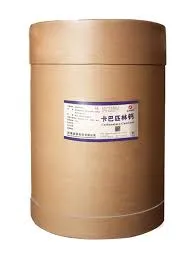- Afrikaans
- Albanian
- Amharic
- Arabic
- Armenian
- Azerbaijani
- Basque
- Belarusian
- Bengali
- Bosnian
- Bulgarian
- Catalan
- Cebuano
- Corsican
- Croatian
- Czech
- Danish
- Dutch
- English
- Esperanto
- Estonian
- Finnish
- French
- Frisian
- Galician
- Georgian
- German
- Greek
- Gujarati
- Haitian Creole
- hausa
- hawaiian
- Hebrew
- Hindi
- Miao
- Hungarian
- Icelandic
- igbo
- Indonesian
- irish
- Italian
- Japanese
- Javanese
- Kannada
- kazakh
- Khmer
- Rwandese
- Korean
- Kurdish
- Kyrgyz
- Lao
- Latin
- Latvian
- Lithuanian
- Luxembourgish
- Macedonian
- Malgashi
- Malay
- Malayalam
- Maltese
- Maori
- Marathi
- Mongolian
- Myanmar
- Nepali
- Norwegian
- Norwegian
- Occitan
- Pashto
- Persian
- Polish
- Portuguese
- Punjabi
- Romanian
- Russian
- Samoan
- Scottish Gaelic
- Serbian
- Sesotho
- Shona
- Sindhi
- Sinhala
- Slovak
- Slovenian
- Somali
- Spanish
- Sundanese
- Swahili
- Swedish
- Tagalog
- Tajik
- Tamil
- Tatar
- Telugu
- Thai
- Turkish
- Turkmen
- Ukrainian
- Urdu
- Uighur
- Uzbek
- Vietnamese
- Welsh
- Bantu
- Yiddish
- Yoruba
- Zulu
Nov . 09, 2024 21:34 Back to list
Veterinary Amoxicillin Injection for Treating Animal Infections and Enhancing Health
Understanding Veterinary Amoxicillin Injection Uses, Dosage, and Considerations
Amoxicillin is a widely used antibiotic in veterinary medicine, particularly for its effectiveness against a variety of bacterial infections in animals. As a member of the penicillin family, amoxicillin works by inhibiting the synthesis of bacterial cell walls, thereby killing the bacteria and helping to maintain the health and well-being of pets and livestock. This article will delve into the uses, dosage, and important considerations regarding veterinary amoxicillin injection.
Uses of Veterinary Amoxicillin Injection
Veterinary amoxicillin injection is primarily used to treat infections caused by susceptible gram-positive and some gram-negative bacteria. Common conditions treated with this antibiotic include
1. Skin Infections Bacterial skin infections in dogs and cats often respond well to amoxicillin, particularly abscesses caused by bite wounds or scratches. 2. Respiratory Infections Amoxicillin is effective against respiratory pathogens, making it a common choice for treating pneumonia and bronchitis in various animal species.
3. Urinary Tract Infections (UTIs) Infections affecting the urinary system can be effectively treated with amoxicillin, helping to prevent complications such as kidney damage.
4. Gastrointestinal Infections Certain bacterial infections in the gastrointestinal tract can be addressed through amoxicillin therapy, alleviating symptoms like diarrhea and vomiting.
Dosage and Administration
The dosage of veterinary amoxicillin injection depends on several factors, including the animal's species, weight, the severity of the infection, and the specific bacteria involved. Typically, the standard dosage ranges from 5 to 10 mg per kilogram of body weight, administered every 12 to 24 hours.
veterinary amoxicillin injection

Veterinarians usually recommend that the injection be given subcutaneously or intramuscularly for optimal absorption. It is crucial to follow the veterinarian’s instructions closely to ensure effectiveness and to minimize the risk of developing antibiotic resistance.
Important Considerations
While amoxicillin is generally safe and effective, there are several considerations that pet owners and livestock caretakers should keep in mind
1. Allergies Some animals may be allergic to penicillin or related antibiotics. Signs of an allergic reaction can include itching, swelling, difficulty breathing, or gastrointestinal upset. If any of these symptoms occur after administration, immediate veterinary assistance should be sought.
2. Pre-existing Conditions Animals with liver or kidney disease may require special consideration when receiving amoxicillin, as these conditions can affect the medication's metabolism and excretion.
3. Drug Interactions Amoxicillin may interact with certain other medications. It is essential to inform the veterinarian about any other treatments the animal is receiving to avoid negative interactions.
4. Pregnancy and Lactation The safety of amoxicillin during pregnancy or while nursing has not been fully established. Veterinarians will weigh the risks and benefits before prescribing it to pregnant or nursing animals.
5. Completing the Course It is vital to complete the full course of antibiotics as prescribed, even if the animal appears to recover before the treatment is finished. Incomplete courses can contribute to antibiotic resistance and the possible resurgence of the infection.
Conclusion
Veterinary amoxicillin injection is a crucial tool in the treatment of bacterial infections in animals. Its effectiveness, coupled with a generally favorable safety profile, makes it a go-to choice for many veterinarians. However, responsible use, including proper dosing and a complete course of treatment, is essential to ensure the best outcomes for the animals in our care. Always consult a qualified veterinarian for tailored advice and treatment options for your pets or livestock. By doing so, we can ensure a healthier future for our animal companions.
-
Guide to Oxytetracycline Injection
NewsMar.27,2025
-
Guide to Colistin Sulphate
NewsMar.27,2025
-
Gentamicin Sulfate: Uses, Price, And Key Information
NewsMar.27,2025
-
Enrofloxacin Injection: Uses, Price, And Supplier Information
NewsMar.27,2025
-
Dexamethasone Sodium Phosphate Injection: Uses, Price, And Key Information
NewsMar.27,2025
-
Albendazole Tablet: Uses, Dosage, Cost, And Key Information
NewsMar.27,2025













